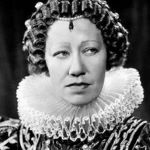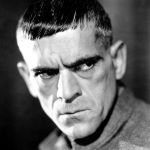Nominees: Fallen Blossoms, The Lady Vanishes, Olympia, Port of Shadows, Pygmalion
Oscars pick: You Can’t Take It With You
Nominees: The Adventures of Robin Hood, Alexander’s Ragtime Band, Boys Town, The Citadel, Four Daughters, Grand Illusion, Jezebel, Pygmalion, Test Pilot
Oscars top film, Capra's irritating and preachy farce, You Can't Take It With You is one of their weakest "Best Picture" winners in my opinion. And while I'll give the Academy props for nominating a foreign language film (their first - Jean Renoir's highly praised Grand Illusion - actually a 1937 release). I have to admit the movie doesn't resonate for me. I found it laborious and didn't care for it structurally, didn't like the clash of humanism and classism, the humor was a fail and I disliked how polite it was (these were prisoners of war? yes, I know he was trying to make a point with that) In truth, aside from the River, I can’t seem to get fired up over Renoir’s overall body of work. They look good and he plays with some big ideas, but I simply don't care for the telling.
Several (unnominated) critical darlings of 1938 include Eisenstein’s historical epic, Alexander Nevsky. A production that was closely monitored by Stalin, which gives it the air of propaganda, but it’s still a notable effort. Sticking to the theme of propaganda, there’s Leni Riefenstahl’s documentary, Olympia. While Riefenstahl’s name is cloaked in controversy, the technical skill she puts on display with this picture was groundbreaking.
Oscar also left out 3 of the years brightest: The nimble wit of Hitchcock's thriller Lady on a Train, the poetic realism of Marcel Carné and Jacques Prevert's Port of Shadows, and Howard Hawks screwball delight Bringing Up Baby, which is my favorite of the year.
Baby is a madcap tale about a beleaguered paleontologist (Cary Grant) a shrill eccentric (Katharine Hepburn), a leopard named baby... and a missing dinosaur bone. There's nothing subtle about BuB, it's flat out insane. And one of the most uproarious pictures I've ever seen, as well as one of the quintessential screwball comedies of the era.
Versatile Howard Hawks was a master in any genre: western, romance, crime, and showed an equally deft hand with comedy. Though he filmed primarily medium shots with few cross-cut edits, the picture is notable for its quick pacing. As well as the snappy, overlapping dialog that's rife with innuendo and double entendres ("You tried it in the tail yesterday and it didn’t fit.” says David's fiance as he struggles to figure out where to place a bone in a dinosaur's skeleton he's working on.)
Grant -who wanted to pass on the role because was unsure he could play an academic- gives one of his best performances playing the mild mannered David. His timing is impeccable and it's a kick watching his growing exasperation with this situation he's caught up in. Hepburn -for whom the script was written specifically for- is said to have struggled with the comedic aspects, but she proves to be a pro at it and is delightfully annoying as the free-spirited Susan. You also get some nice comedic support from May Robson, Charles Ruggles, and Fritz Feld.
Best Actress: Katharine Hepburn, Bringing Up Baby (pictured top) & Holiday
Honorable Mentions: Michèle Morgan, Port of Shadows * Margaret Sullavan, Three Comrades * Margaret Lockwood, The Lady Vanishes * Anna May Wong, Dangerous to Know * Wendy Hiller, Pygmalion * Elsa Lanchester, The Beachcomber * Bette Davis, Jezebel
Supporting Actress: May Whitty, The Lady Vanishes (pictured left)
 Best Actor: Cary Grant, Bringing Up Baby (pictured top) & Holiday
Best Actor: Cary Grant, Bringing Up Baby (pictured top) & HolidayHonorable Mentions: Harry Baur, Mollenard * James Cagney, Angels with Dirty Faces * Michael Redgrave, The Lady Vanishes * Nikolai Cherkasov, Alexander Nevsky * Robert Donat, Citadel * Jean Gabin, La Bête Humaine & Port of Shadows * Leslie Howard, Pygmalion * Raimu, The Baker's Wife
Supporting Actor: Michel Simon, Port of Shadows (pictured left)
< Previous * Next >
Home












.jpg)
























.jpg)





.PNG)
.jpg)

.jpg)




